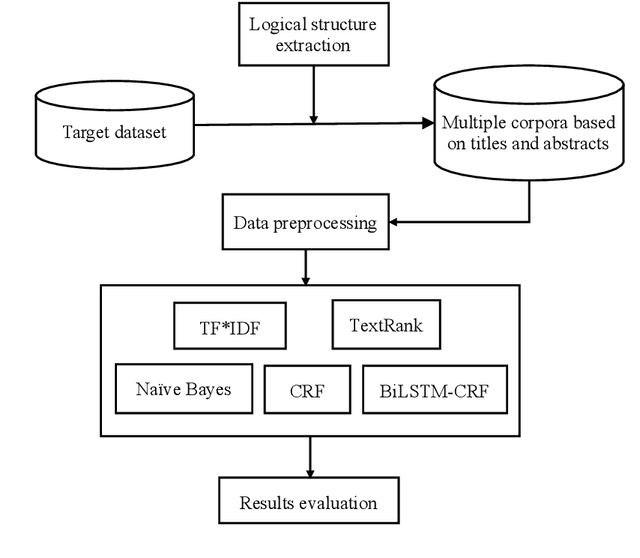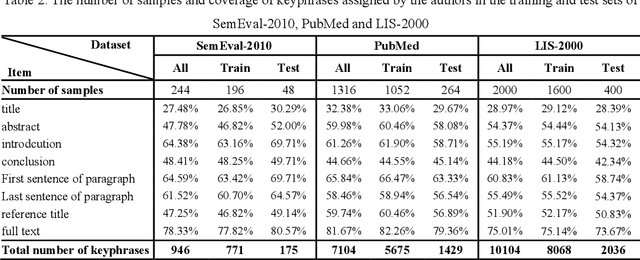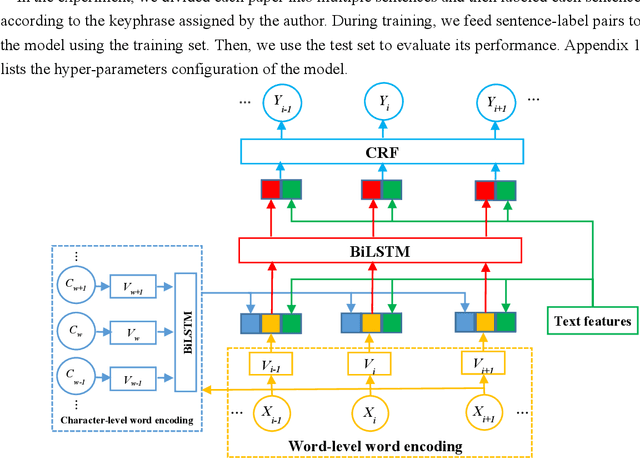Enhancing Keyphrase Extraction from Academic Articles with their Reference Information
Paper and Code
Nov 30, 2021



With the development of Internet technology, the phenomenon of information overload is becoming more and more obvious. It takes a lot of time for users to obtain the information they need. However, keyphrases that summarize document information highly are helpful for users to quickly obtain and understand documents. For academic resources, most existing studies extract keyphrases through the title and abstract of papers. We find that title information in references also contains author-assigned keyphrases. Therefore, this article uses reference information and applies two typical methods of unsupervised extraction methods (TF*IDF and TextRank), two representative traditional supervised learning algorithms (Na\"ive Bayes and Conditional Random Field) and a supervised deep learning model (BiLSTM-CRF), to analyze the specific performance of reference information on keyphrase extraction. It is expected to improve the quality of keyphrase recognition from the perspective of expanding the source text. The experimental results show that reference information can increase precision, recall, and F1 of automatic keyphrase extraction to a certain extent. This indicates the usefulness of reference information on keyphrase extraction of academic papers and provides a new idea for the following research on automatic keyphrase extraction.
 Add to Chrome
Add to Chrome Add to Firefox
Add to Firefox Add to Edge
Add to Edge